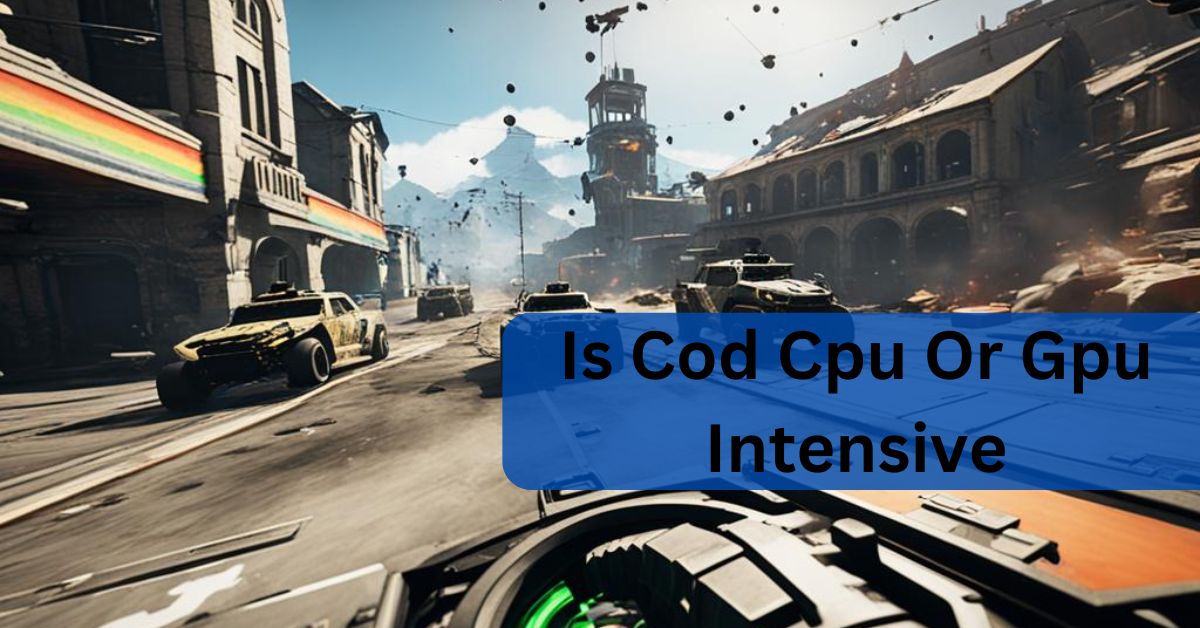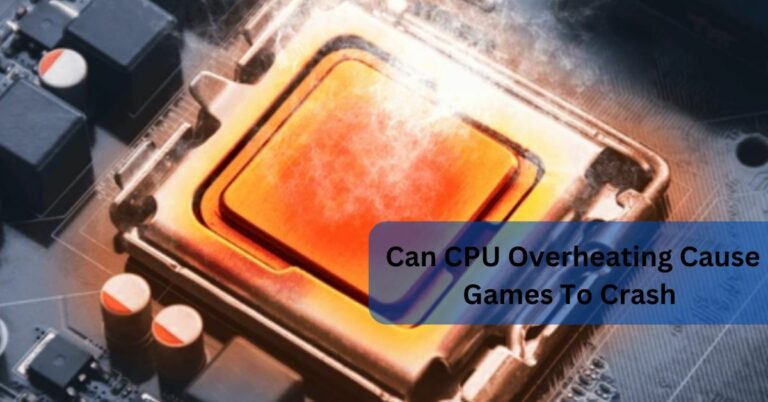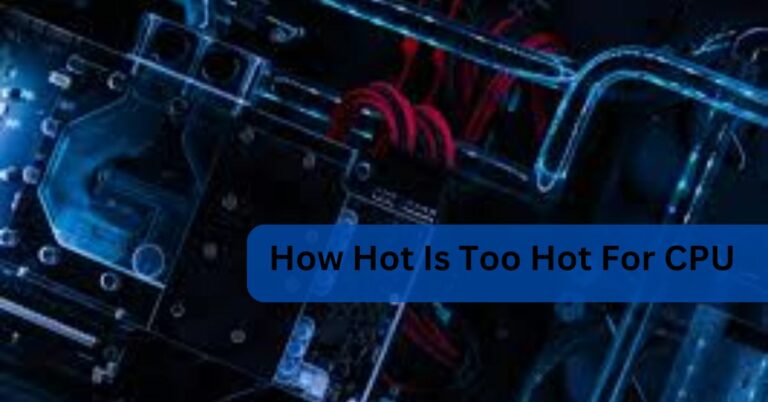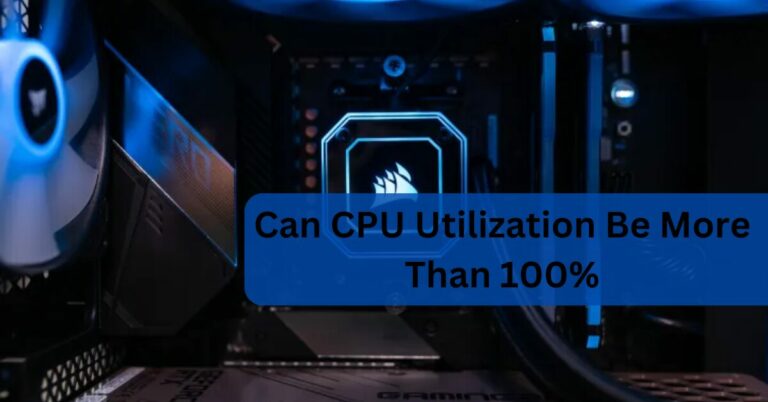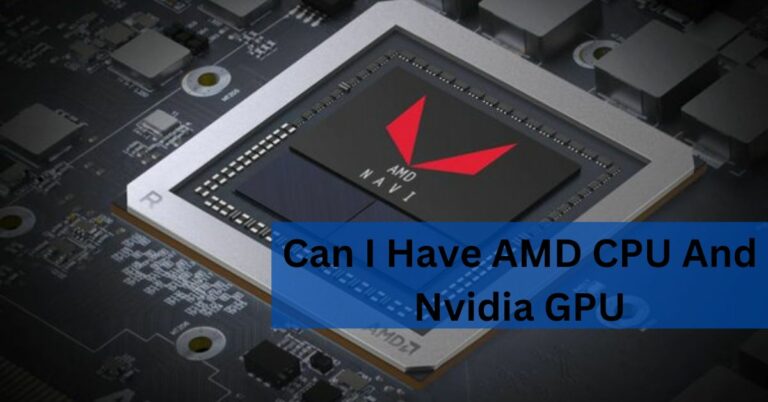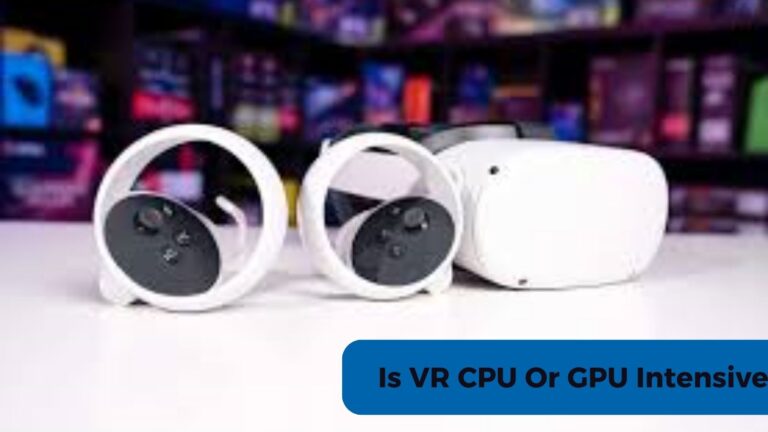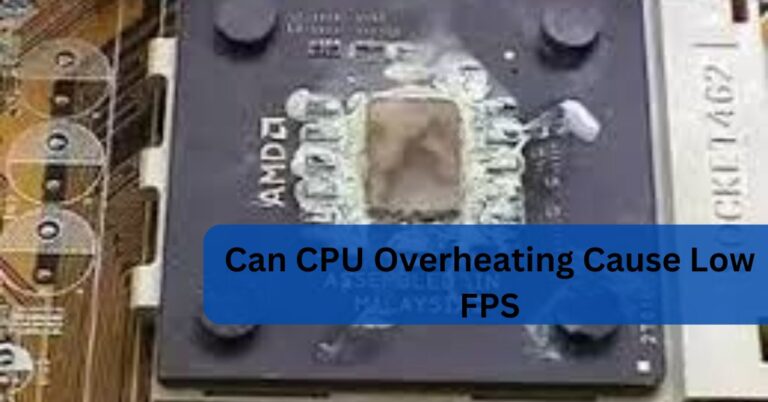Is Cod Cpu Or Gpu Intensive – A Comprehensive Guide In 2024!
When discussing the performance demands of Call of Duty (COD) games, it’s crucial to understand how the game utilizes the CPU (Central Processing Unit) and GPU (Graphics Processing Unit).
“Call of Duty is more GPU intensive, as the graphics card handles the game’s visuals and effects. Mainly, it also relies on the CPU for tasks like physics and AI, so both components are important for smooth gameplay”
Both components are essential, but they play different roles in delivering an optimal gaming experience.
Is Cod CPU Or GPU Intensive?
Call of Duty (COD) is mostly GPU intensive because it needs strong graphics for detailed visuals. The CPU also matters for running the game’s logic and AI, but the GPU is the main focus for good graphics performance.
What is a CPU and GPU?
CPU (Central Processing Unit):
The CPU is the computer’s main processor that handles general tasks and instructions, like running programs and managing data.
GPU (Graphics Processing Unit):
The GPU is specialized in creating and displaying graphics, such as images and videos, making it essential for detailed visuals in games.
How do CPUs and GPUs work together in gaming?
In gaming, the CPU handles game logic and instructions, while the GPU focuses on rendering the graphics. They work together to ensure smooth gameplay: the CPU manages the game’s operations, and the GPU produces the visual details.
Why is understanding CPU and GPU important for CoD?
Understanding CPUs and GPUs is important for Call of Duty because it helps you know what hardware is needed for smooth gameplay. A strong GPU is crucial for good graphics, while a good CPU ensures the game runs efficiently.
Does CoD rely more on CPU or GPU?
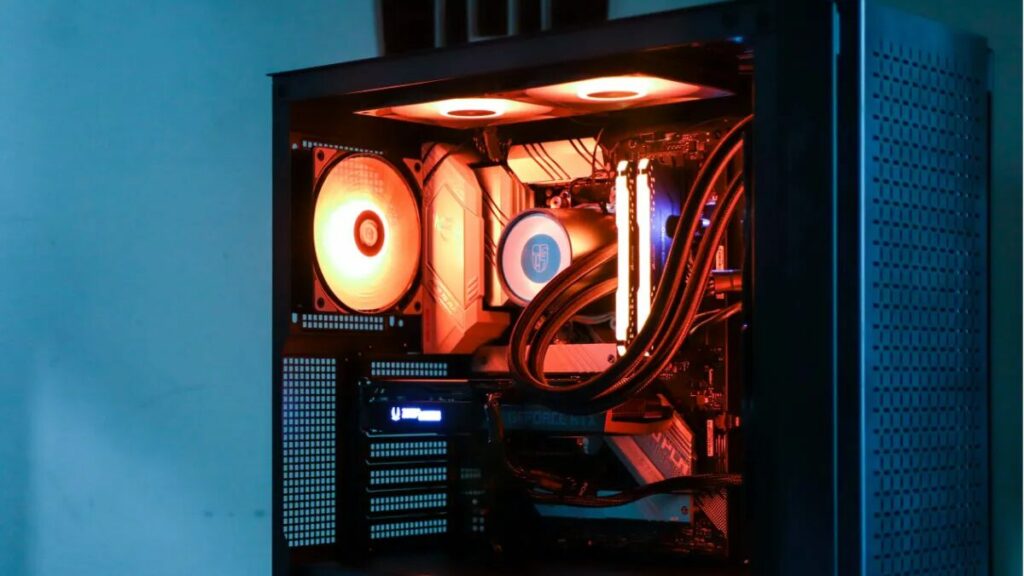
Call of Duty relies more on the GPU for creating detailed graphics and smooth visuals. While the CPU also plays a role in managing game logic, the GPU is the main component for high-quality graphics in the game.
What are the specific tasks CoD puts on a CPU?
In Call of Duty, the CPU handles tasks like game logic, AI behaviours, and managing game rules. It processes actions, controls characters, and keeps track of the game’s progress, but the GPU handles the graphics.
How does CoD utilize GPU power for visuals?
Call of Duty uses GPU power to create detailed and smooth graphics. The GPU handles rendering images, textures, and effects, making the game look clear and realistic with high-quality visuals and fast frame rates.
Does CoD resolution affect CPU or GPU load?
In Call of Duty, higher resolution mainly increases the GPU load because it needs to render more detailed images. The CPU load remains mostly the same, focusing on game logic and other tasks.
How do graphics settings impact CPU and GPU usage?
Graphics settings impact GPU usage by increasing or decreasing the detail in visuals. Higher settings require more GPU power for rendering. CPU usage can also increase slightly, but the GPU is more affected by changes in graphics settings.
Does CoD’s multiplayer mode require more CPU or GPU?
Call of Duty’s multiplayer mode requires more GPU power for detailed graphics and smooth visuals. The CPU also handles game logic and network tasks, but the GPU is more crucial for high-quality graphics in multiplayer gameplay.
Does CoD’s single-player mode have different hardware demands?
Call of Duty’s single-player mode generally has similar hardware demands to multiplayer. Both modes require a strong GPU for detailed graphics, though single-player may use the CPU more for complex game logic and story elements.
How to tell if your CPU is bottlenecking CoD?
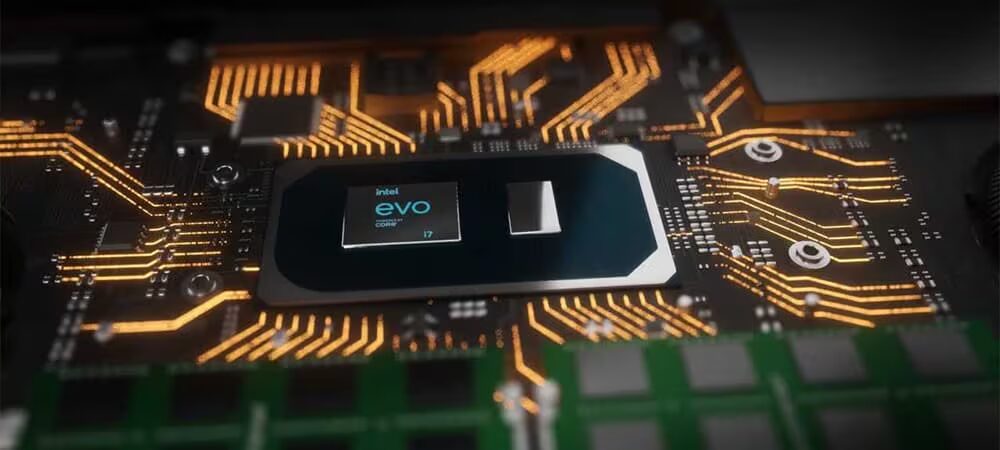
You can tell if your CPU is bottlenecking Call of Duty by checking if the CPU usage is consistently high while the GPU usage is low during gameplay. This imbalance often indicates the CPU is limiting performance.
How to determine if your GPU is holding back CoD?
To see if your GPU is holding back Call of Duty, check if the GPU usage is consistently high while the CPU usage is low during gameplay. If the GPU is maxed out and causing performance issues, it’s the bottleneck.
What are the signs of a CPU bottleneck in CoD?
Signs of a CPU bottleneck in Call of Duty include high CPU usage while the GPU usage is low, and lag or stuttering in gameplay. If the CPU is working hard but the GPU isn’t, the CPU might be the problem.
What are the symptoms of a GPU bottleneck in CoD?
Symptoms of a GPU bottleneck in Call of Duty include high GPU usage with low CPU usage and issues like low frame rates or poor graphics quality. If the GPU is fully used and causing slowdowns, it’s likely the bottleneck.
Should I prioritize a powerful CPU or GPU for CoD?
For Call of Duty, prioritize a powerful GPU because it handles the game’s graphics and visual details. A strong GPU ensures better visuals and smoother gameplay, though a good CPU is also important for overall performance.
Can a good CPU make up for a weaker GPU in CoD?
No, a good CPU cannot fully make up for a weaker GPU in Call of Duty. The GPU is crucial for graphics and visual quality, so a strong GPU is needed for the best gaming experience, even with a good CPU.
Is a strong GPU enough for CoD without a good CPU?
A strong GPU is important for good graphics in Call of Duty, but a good CPU is also needed. Both are crucial: the GPU for visuals and the CPU for game logic and smooth performance. A balanced system works best.
How to choose the right CPU and GPU for CoD?
To choose the right CPU and GPU for Call of Duty, look for a powerful GPU for great graphics and a strong CPU to handle game logic. Balance both components to ensure smooth gameplay and high-quality visuals.
Is CoD: Modern Warfare 2 CPU or GPU intensive?
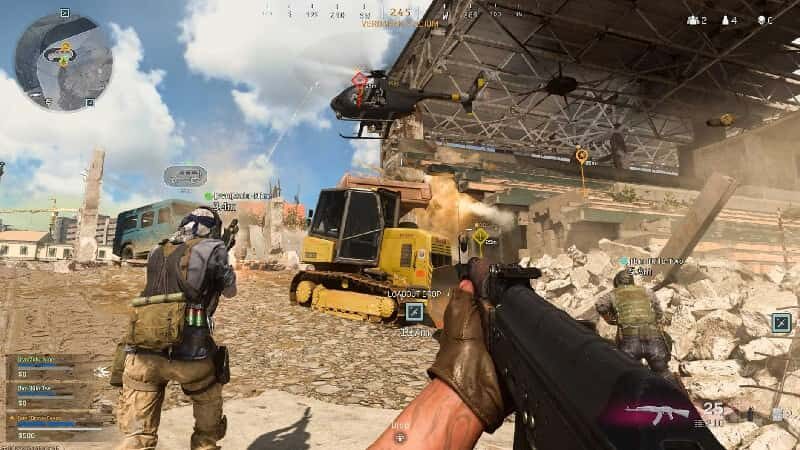
Modern Warfare 2 is more GPU intensive because it requires a powerful GPU for detailed graphics and smooth visuals. The CPU also plays a role, but the GPU is key for the best visual experience.
Warzone 2.0 more demanding on CPU or GPU?
Warzone 2.0 is more demanding on the GPU for high-quality graphics and smooth visuals. While the CPU is also important for handling game logic, the GPU is crucial for the best performance and graphics in the game.
Does Black Ops Cold War have similar hardware requirements?
Yes, Black Ops Cold War has similar hardware requirements to other Call of Duty games. It needs a strong GPU for good graphics and a capable CPU for smooth gameplay, balancing both for optimal performance.
How do older CoD titles compare in terms of CPU and GPU usage?
Older Call of Duty titles generally use less CPU and GPU power compared to newer games. They require less advanced hardware, so they run well on older systems but may have lower graphics quality and fewer features.
Will future CoD games be more CPU or GPU-demanding?
Future Call of Duty games are likely to be more GPU-demanding due to increasing graphics and visual detail. However, they will also need a strong CPU for improved game logic and performance, so both components will be important.
How might ray tracing impact CoD’s hardware requirements?
Ray tracing in Call of Duty will increase hardware requirements because it demands more from the GPU for detailed and realistic lighting effects. This means players will need more powerful GPUs to run the game smoothly with ray tracing enabled.
What other factors might influence CoD’s CPU and GPU needs?
Other factors influencing Call of Duty’s CPU and GPU needs include game settings, resolution, and frame rate. Higher settings and resolutions demand more from both the CPU and GPU for better performance and visuals.
How to optimize your PC for CoD performance?
To optimize your PC for Call of Duty, update your drivers, adjust game settings for balance, and close background applications. Ensure your hardware meets game requirements and consider upgrading components like the GPU for better performance.
Can overclocking help improve CoD’s performance?
Yes, overclocking can improve Call of Duty’s performance by making your CPU or GPU run faster. However, it can also increase heat and require better cooling, so ensure your system is properly cooled and stable.
What are some software tweaks to enhance CoD’s efficiency?
To enhance Call of Duty’s efficiency, adjust in-game settings for better performance, update your graphics drivers, and use game optimization software. Also, make sure to close unnecessary background programs to free up system resources.
Should I consider upgrading my RAM for better CoD gameplay?

Upgrading your RAM can improve Call of Duty gameplay, especially if you have less than the recommended amount. More RAM helps with smooth performance and reduces lag, but also ensures your GPU and CPU are up to date for the best experience.
What are the best settings for CoD to balance performance and visuals?
To balance performance and visuals in Call of Duty, set graphics to medium or high, adjust the resolution to match your monitor, and enable features like V-Sync or FPS limits to reduce stuttering. Test settings to find the best mix for your system.
FAQs:
What is more important for Call of Duty: CPU or GPU?
For Call of Duty, the GPU is more important as it handles detailed graphics. However, a good CPU is also needed to manage game logic and performance.
Does higher resolution affect GPU or CPU more in CoD?
Higher resolution mainly affects the GPU, as it needs to render more detailed images. The CPU’s load remains relatively stable.
How can I tell if my CPU or GPU is the bottleneck in CoD?
Check your system’s usage stats; if the CPU is at high usage while the GPU is low, the CPU might be the bottleneck, and vice versa.
Will overclocking my CPU or GPU improve CoD performance?
Overclocking can boost CoD performance by increasing your CPU or GPU’s speed. Ensure proper cooling to handle the increased heat.
What settings should I adjust for better CoD performance?
Adjust graphics settings to medium or high and set resolution to match your monitor. Also, enable V-Sync to prevent screen tearing.
Does upgrading RAM help with Call of Duty?
Upgrading RAM can improve performance if you have less than the recommended amount. It helps with smooth gameplay, especially in demanding scenes.
Conclusion:
Call of Duty games primarily rely on the GPU for detailed graphics and smooth visuals, though the CPU is also important for handling game logic and AI. For the best experience, both a strong GPU and a capable CPU are necessary. To optimize performance, adjust game settings to balance visuals and frame rates, and consider upgrading your RAM if needed. Monitoring CPU and GPU usage can help identify any performance issues, and overclocking might improve results if your system is properly cooled

